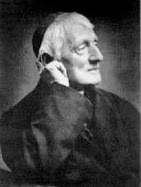
In my conversion story (posted here) I wrote,
I am persuaded that... anyone worthy of the name “protestant” is honor bound to ask himself from time to time why he is still a protestant – should ask himself what, after all, he is protesting. To reject the Catholic Church based on an honest assessment of its claims is one thing. But too often, protestants do what I did for many years – they reject the Church based on an incomplete or biased view of those claims.
In keeping with the goal of increasing Protestant/Catholic understanding, I would like to recommend a book I read recently, and I hope this will be only the first of many such friendly challenges to my evangelical brethren to assess fully the actual teachings of the Catholic Church before rejecting those teachings.
By What Authority? An Evangelical Discovers Catholic Tradition, by Mark Shea, is the story of the author's own careful investigation of the claims of the Catholic Church, partly in response to modernist attacks on the Christian faith by members of the Jesus Seminar. He ultimately concluded that Sacred Tradition, rightly understood, is an essential underpinning not only of the Catholic Church but of orthodox Christianity in general.
Written in a style that is accessible, thoroughly engaging and humorous, By What Authority? also explains why an over emphasis on a "Bible-only" defense of the Christian faith can actually undermine attempts to defend the faith against modernist attacks from the likes of the Jesus Seminar. This book should appear on the reading list of anyone - Catholic or Protestant - interested in learning more about Catholic Tradition.






4 comments:
Funny how that book keeps popping up.... :-)
Furthermore, even if one disagreed with certain Catholic positions, remaining protestant is only justified if one takes those disagreements to currently warrant schism.
For example, if one takes the disagreement wrt the definition of justification to have been resolved then disagreements about, say, Marian doctrines can not be used as a substitute reason for continued schism unless one takes differences about those doctrines to have been adequate reason for the Protestant revolution in the first place.
It's rather ironic to see Lutherans and Anglicans remaining outside of full communion with the Catholic Church based on the inertia of their tradition!
Thank you, tdunbar, for your comment. I've pondered the same issue myself over the years--namely, the historical protestant tendency to keep moving the goalpost. Thus, objections to the selling of indulgences became objections to the doctrine re. indulgences. In the Church of England, a political disagreement about papal permission for the king to marry his brother's widow eventually morphed into the 39 Articles of Faith. Your phrase, "the inertia of tradition" is very apt.
I've read this book and also heartily recommend it to anyone that considers themselves open to following the truth wherever it leads.
Mark Shea's blog is pretty awesome too, btw.
Thanks again for your prayers regarding my exploration of liturgical worship.
Post a Comment